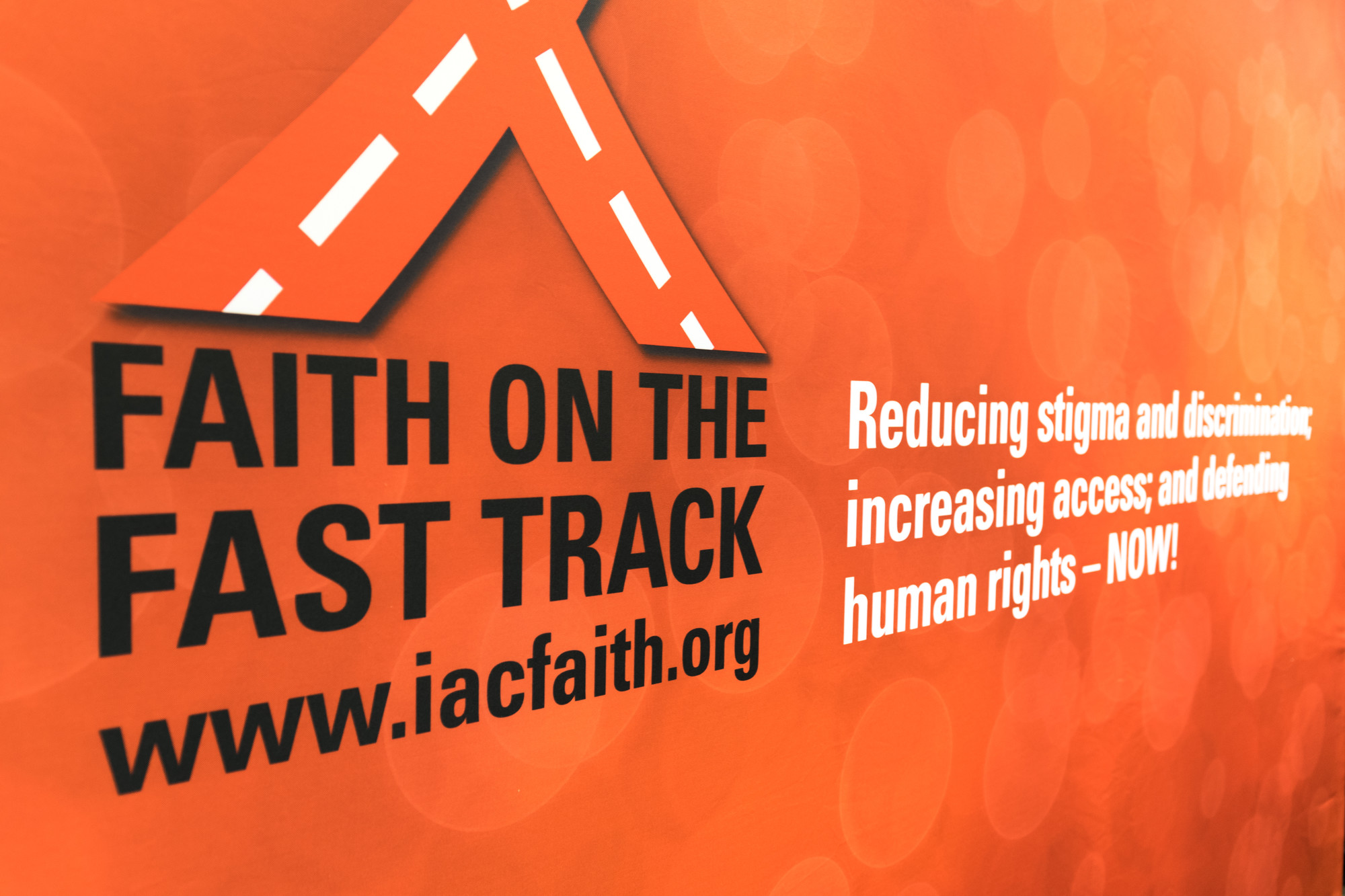DAVID ADAMS reports on renewed calls for action on HIV prevention ahead of this week’s 21st International AIDS Conference opens in South Africa…

Significant progress has been made in stopping new HIV infections among children, but a report released by UNAIDS last week shows that the decline in new infections among adults has stalled and calls for an urgent scaling up of action to tackle the issue among this group.
The Prevention Gap Report shows that while new HIV infections among children have declined by more than 70 per cent since 2001, an estimated 1.9 million adults, those aged 15 and older, have become infected with HIV every year for the past five years.

Poster from the Faith on the Fast Track pre-AIDs 2016 conference which met in Durban, South Africa, last week ahead of the annual international AIDS conference.
“I believe the more we talk about our HIV statuses and challenges the freer we become even from self-stigma.”
– Rev Sibusiso Courtene Mosia, of the Lutheran Communion of Southern Africa (LUCSA)
While the situation is particularly critical in Eastern Europe and central Asia which saw a 57 per cent increase in new infections over the five years to 2015, there is also concern about other parts of the world such as the Caribbean – where annual new HIV infections rose 9 per cent between 2010 and 2015, and in the Middle East and North Africa where annual new infections increased by four per cent over the same period.
Michel Sidibé, executive director of UNAIDS, said the organisation was “sounding the alarm”. “The power of prevention is not being realized. If there is a resurgence in new HIV infections now, the epidemic will become impossible to control,” he said. “The world needs to take urgent and immediate action to close the prevention gap.”
Elsewhere, the report shows that some 57 per cent of all people living with HIV know their status, that 46 per cent of those living with HIV have access to antiretroviral treatment and 38 per cent of all people living with HIV have viral suppression which prevents transmission of the virus.
Meanwhile, an interfaith conference on AIDS held in South Africa last week ahead of this week’s AIDS 2016 conference, was told that religious leaders have a key role in helping to prevent the spread of AIDS.
Faghmeda Miller, a health promoter and counsellor at the University of the Western Cape and the only Muslim woman openly living with HIV in South Africa, told the 150 people at the conference in Durban that people like herself continue to be discriminated against and that while antiretroviral drugs are available at clinics, “they are not accessible to all because the clinics are HIV-unfriendly places”.
“Religious leaders who have the potential to play a major role in spreading the correct information and using their premises for the distribution of ARVs have become immune to the HIV pandemic except on World Aids Day,” Ms Miller reportedly said.
“We cannot look the other way whilst people living with HIV die – we need to start talking about HIV and stop labelling people. A person can live long with the virus; what is killing us is the stigma attached to the virus. Stigma kills more people than HIV and AIDS.”
The conference, which was attended by representatives of the World Council of Churches, also heard that churches should “stop viewing AIDS as something that is out there”.
Rev Amin Sandewa of the Evangelical Lutheran Church in Tanzania, who has been a minister for 25 years and HIV positive for 22 years said that he disclosed his status “within a context that viewed HIV as a punishment for sin”.
“When my wife and two children died, I had no choice but to disclose my status to the church and they wanted to hide me. I went for four years without a station or a salary until I joined and worked with INERELA, an organisation that empowered me with information.”
Another minister, Rev Sibusiso Courtene Mosia, of the Lutheran Communion of Southern Africa (LUCSA), said that after he disclosed his status in 2010, “I was alienated and spent a year without a salary”.
“I believe the more we talk about our HIV statuses and challenges the freer we become even from self-stigma,” he said.
In June this year, the UN’s General Assembly agreed that ending the scourge of AIDS by 2030 would mean fast-tracking the world’s response, including reducing new HIV infections to fewer than 500,000 a year by 2020 as well as reducing AIDs-related deaths to fewer than 500,000 a year and elimating HIV-related stigma and discrimination by the same period.
Since the start of the AIDS epidemic 35 years ago, some 35 million people have died from AIDS-related illnesses and an estimated 78 million people have become infected with HIV.





